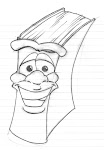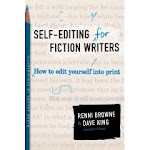First, thanks to Sandi for giving us a chance to get together.
To take the last question first, Jill, I'm afraid there are no rules. Omniscient narrator is not wrong, but . . .
If you're writing from the omniscient narrator, you lose the opportunity to use wonderfully subtle tools for creating characters like describing things in language that reflects your viewpoint character's state of mind. Avoiding omniscient narrator also allows your interior monologue to flow naturally, without all those awkward mechanics, like "he or she thought," italics, or shifts to the first person. It's not necessary to use first or third person -- Jane Austen created some brilliant characters in the omniscient narrator -- but it is easier.
I've sometimes seen the omniscient narrator used extremely effectively. Consider the first chapter of Harry Potter and the Sorcerer's Stone. But J. K. Rowling then moved to the third person to let all her readers fall thoroughly in love with Harry.
Debra and Jeannie, I'm not entirely sure what "deep" POV is. I've always thought of the third person POV as being an intimacy/distance continuum, running from something close to omniscient narrator at the distance end to something close to first person at the intimacy end. One of the elements that locates your point on that continuum is the language you use -- including the names your viewpoint character uses for himself or herself and for others. At the intimate end, your character might refer to her father as "Dad." A little further toward the distance end, it might be "her father." Just try not to change distance too abruptly -- by using two or more different referents in the same scene, for instance.
My website, http://www.davekingedits.com/, has an article that goes into more depth on POV.
Hope this helps,
Dave
***
Debra, I will answer your other question in the next post. ~Sandi
Friday, October 9, 2009
Subscribe to:
Post Comments (Atom)












Thanks to Dave King for the responses on POV. Now I have to look at HARRY POTTER AND THE SORCER'S STONE. I haven't read the book,only saw the movie, and now I'm interested to see the shift in POV.
ReplyDeleteSELF-EDITING FOR FICTION WRITERS continues to be of benefit to me. It is one of those books that I go back to about every six months and re-read.
A J
AJHawke.blogspot.com
Wonderful, Sandi! Thks for having Dave King. I loved the blog.
ReplyDeletehttp://sunnebnkwrtr.blogspot.com
Dave,
ReplyDeleteI've told more writers about your book than any other writer's book. I'm often a judge for a large fiction writing competition and most of the entries I read could be improved 60-80% if they's just read your book. Thank you!
And thanks for your thoughtful answer to Jill's question. I'm processing that along with her.
Dave, thank you for addressing my question. In regard to Rowling's switch from omniscient to 3rd person POV throughout her Harry Potter series, I've noticed I switch too and was concerned it was outside the "rules." Knowing I'm "allowed" takes a HUGE burden off my shoulders.
ReplyDeleteI think my best bet right now is to continue studying the work and rhythm of those authors who have successfully mastered omniscient POV and omniscient/3rd person POV switching, then write and see where it goes.
Again, thanks for your expertise!
Great reading your bloog post
ReplyDelete